ConsumerReports
Latest
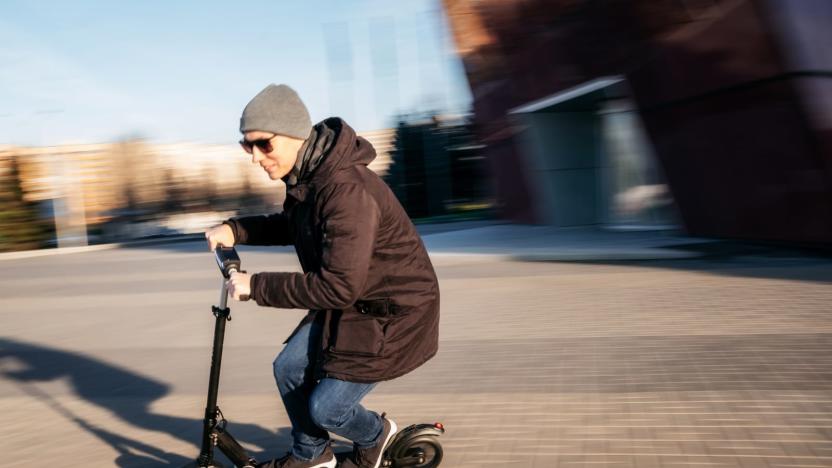
Electric scooters were to blame for at least 1,500 US injuries last year
Ever wondered how many e-scooter riders have gotten injured after one zooms past you with no helmet on? A new Consumer Reports investigation might give you an idea: the publication has confirmed that at least 1,545 patients were treated for scooter-involved injuries across the US over the past year. They aren't just scrapes, either. They include multiple concussions, nasal fractures, various broken bones, blunt head trauma and even brain injuries.
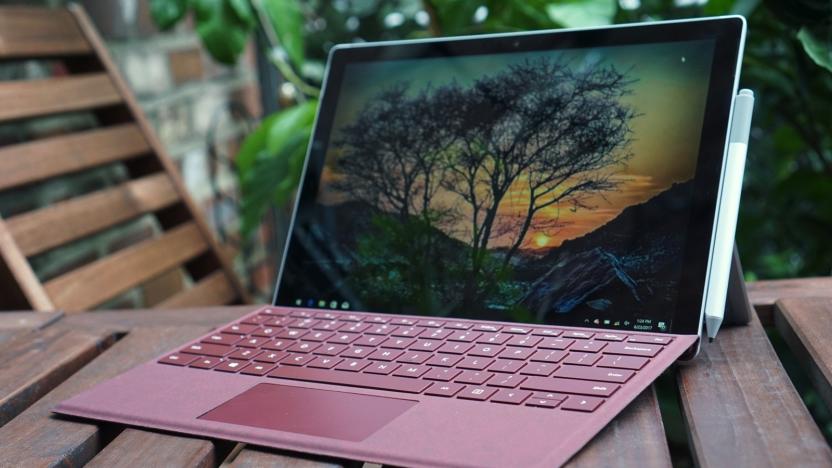
Microsoft's Surface is back in Consumer Reports' good graces
Microsoft's Surface PCs have regained Consumer Reports' "recommended" status after the organization conducted reliability evaluations by surveying its members. Based on its latest study, most of the magazine's subscribers now find the laptops' predicted reliability "on-par with most other laptop brands" listed in the survey. The new criteria might have something to do with it -- apparently, this is the first year that brand reliability and owner satisfaction are being factored into overall scores -- though the organization didn't say that outright.
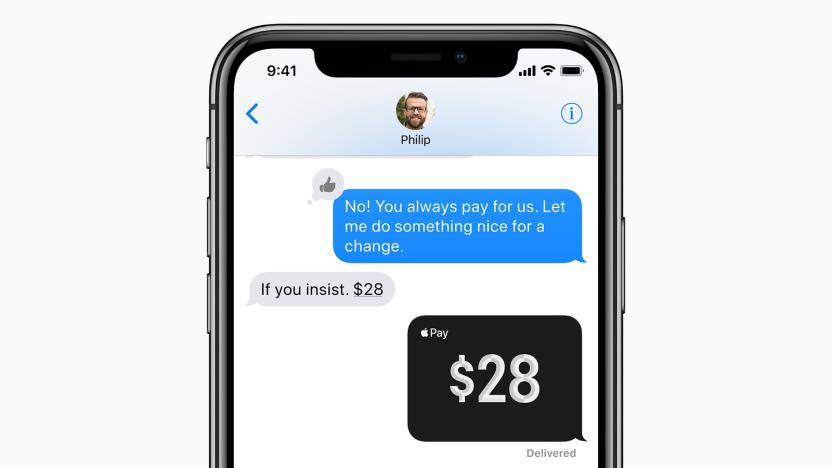
Apple Pay Cash leads Consumer Reports' first payment service test
Peer-to-peer mobile payment services are all the rage these days (eMarketer expects a 24 percent jump in US adoption in 2018), but which of them is actually the safest to use? Consumer Reports might have an idea. The publication has conducted its first head-to-head test of payment services, and it's clear that some services are better picks than others. While all of the payment platforms were "good enough to use," Apple Pay Cash was the victor due to its stronger-than-usual privacy and security.
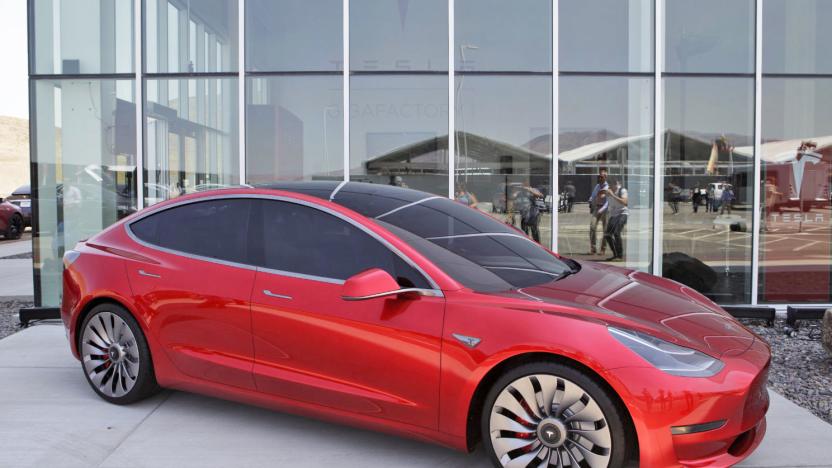
Tesla Model 3 earns Consumer Reports recommendation with brake update
Earlier this month, Consumer Reports chose not to recommend Tesla's Model 3 due to a handful of factors, though most notably because of a long 60-to-0MPH braking distance. While Tesla claimed the car could come to a stop in 133 feet, Consumer Reports didn't find that to be the case. In tests, the Model 3 more often stopped in 152 feet, a longer distance than that required by a Ford F-150. Initially, Tesla said the discrepancy could be due to factors like temperature, the road surface and past driving behavior, but later, CEO Elon Musk said the brake issue could be fixed with a firmware update. Consumer Reports agreed to retest the Model 3 following such an update and today the publication announced the car's brakes passed its test and the Model 3 has received its recommendation.
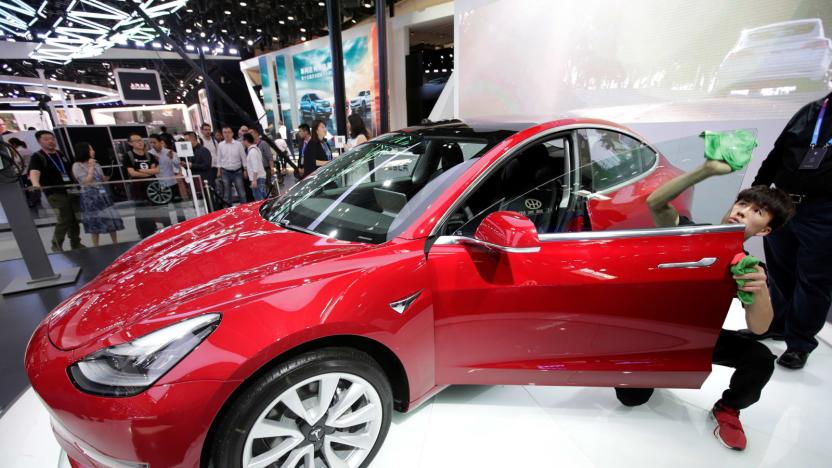
Consumer Reports will give Tesla’s Model 3 another shot after brake fix
After Consumer Reports once again slammed a Tesla vehicle -- this time, the automaker's eagerly-anticipated Model 3 -- the publication said it will retest the car following a software update. The car company's CEO Elon Musk promised a firmware revision will come in the next few days to address one of Consumer Reports' biggest sticking points: The car braked far more slowly than competitors, taking even longer to come to a complete stop than a Ford pickup truck.
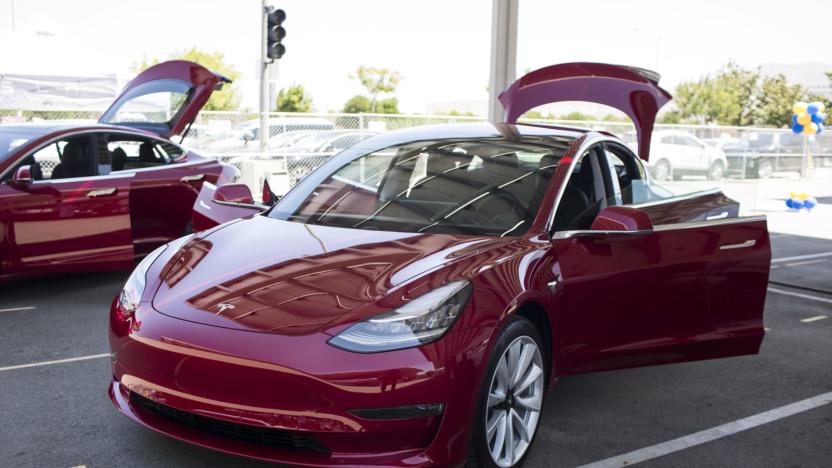
Tesla and Consumer Reports continue feud following Model 3 review
Tesla and Consumer Reports have a sordid history of squabbling over car reviews, and that's not about to stop just because the Model 3 is on the road. CR has stopped short of recommending the Model 3 following a handful of complaints, most notably braking. The publication found that the EV only came close to Tesla's estimated 60-to-0MPH braking distance (about 133 feet) once -- it more typically stopped in 152 feet, which was "far worse" than other modern cars and 7 feet further than a giant Ford F-150. This happened with a privately owned second tester, so it couldn't be chalked up to a fluke.
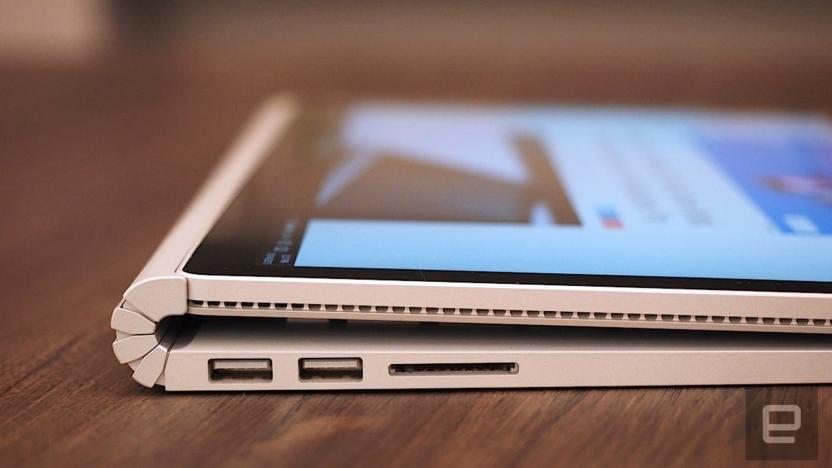
Microsoft claims Surface reliability isn't really that bad
Consumer Reports said that it would no longer recommend Microsoft's Surface laptops and tablets because of "poor predicted reliability" compared to other brands, based on its surveys. Now Microsoft has responded, with a statement saying that it is "disappointed" in the decision and providing some of its own data. Panos Panay, Corporate Vice President, Microsoft Devices: We are proud of our products and the amazing things our customers are doing with them. We stand firmly behind the quality and reliability of the Surface family of devices, and I can confidently tell you there has never been a better time to buy a Surface.
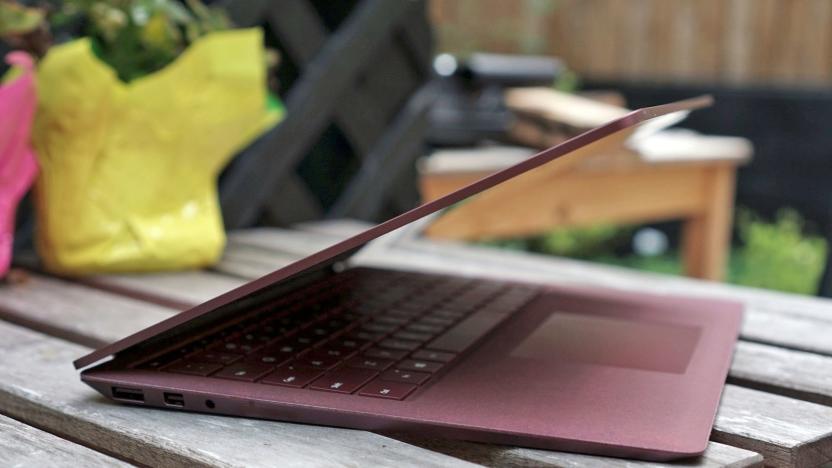
Consumer Reports pulls recommendation from Surface PCs
While Consumer Reports has previously given Microsoft Surface products good reviews for lab performance measures like battery life, speed and display quality, it's now pulling its "recommended" rating from four Microsoft laptops due to reliability issues. Through surveys conducted on over 90,000 tablets and laptops that Consumer Reports subscribers purchased between 2014 and early 2017, the company estimates that 25 percent of Microsoft laptop and tablet owners will experience problems like freezing, unexpected shutdowns and unresponsive touch screens by the end of the second year of ownership.
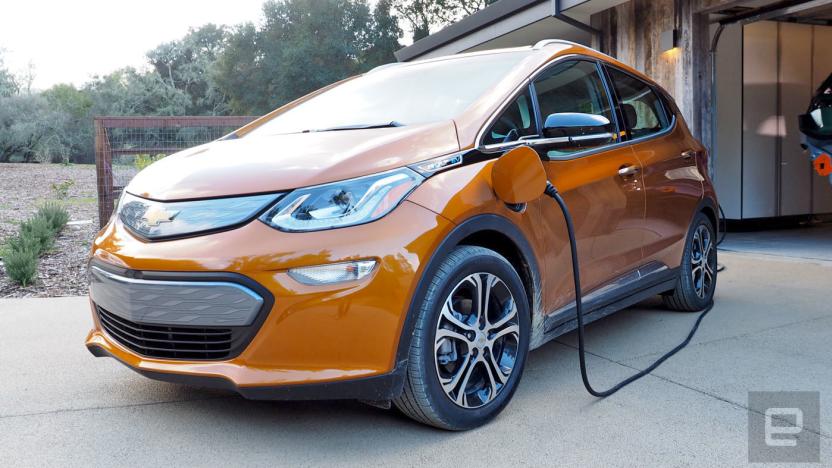
Chevy Bolt outlasts Tesla's Model S in Consumer Reports range test
Consumer Reports just published the results of its range test of the Chevrolet Bolt electric car and came up with some surprising results. While the Bolt is rated for 238 miles of driving by the EPA, the car exceeded that in the Consumer Reports test, squeezing out 12 more miles for a total of 250. That means the Bolt officially beats Tesla's Model S, at least in this particular test. When CR tested the Model S 75D, it got 235 miles, compared to the EPA estimate of 259.
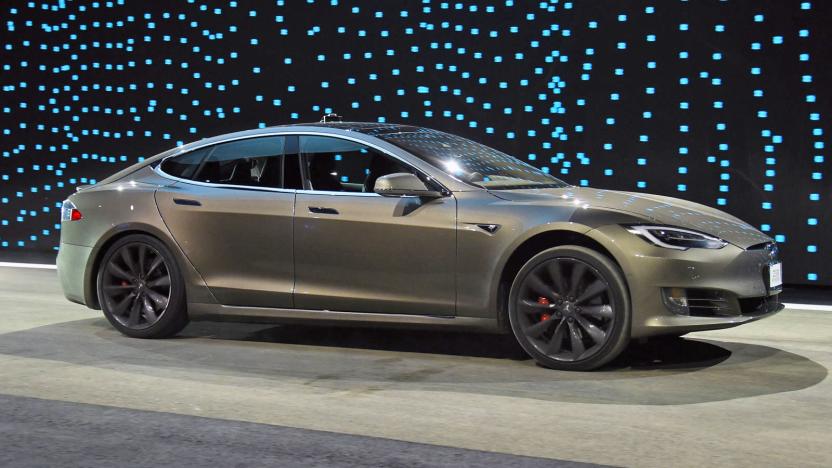
Tesla revives automatic braking in response to lower review scores
Apparently, public pressure works... to a degree. Tesla has reintroduced automatic emergency braking to the Model S and Model X through an update after their continued omission led Consumer Reports to lower its ratings for the electric cars. It's a tentative step, mind you. The feature currently only works at speeds up to 28MPH, so this won't save you if someone abruptly slows down on the highway. Higher speeds will come in stages, Tesla says. It's not clear just when you'll see the 90MPH braking that came with models released before October 2016.
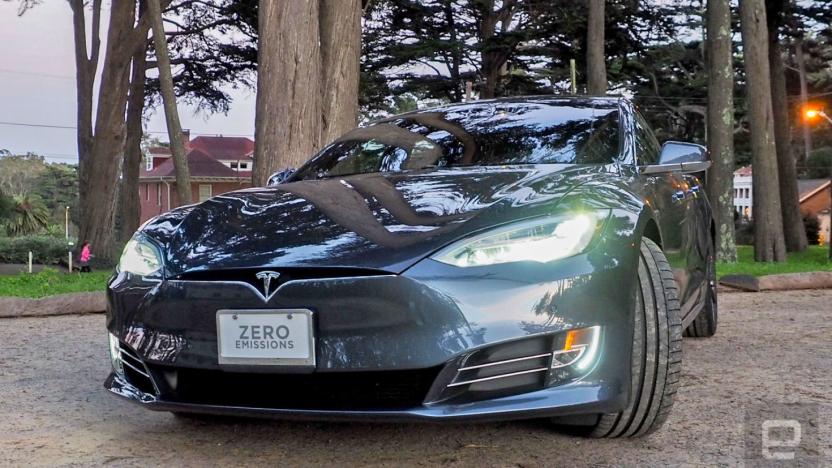
Tesla Model S safety concerns cost it Consumer Reports' top rating
Consumer Reports and Tesla really aren't getting along well lately. The what-should-I-buy magazine has lowered the ratings of Tesla's Model S and Model X after noting that a promised automatic emergency braking feature (originally due by the end of 2016) is still missing. The move isn't too damaging for the Model X, since a two-point drop from a modest score of 58 isn't likely to change buyers' minds. For the Model S, however, it's a big blow -- the move from 87 to 85 knocks the electric sedan from the top of the ultraluxury category to third. While few people choose a car simply because it's leading the Consumer Reports charts, it's harder to make your case when you're merely considered better than average.
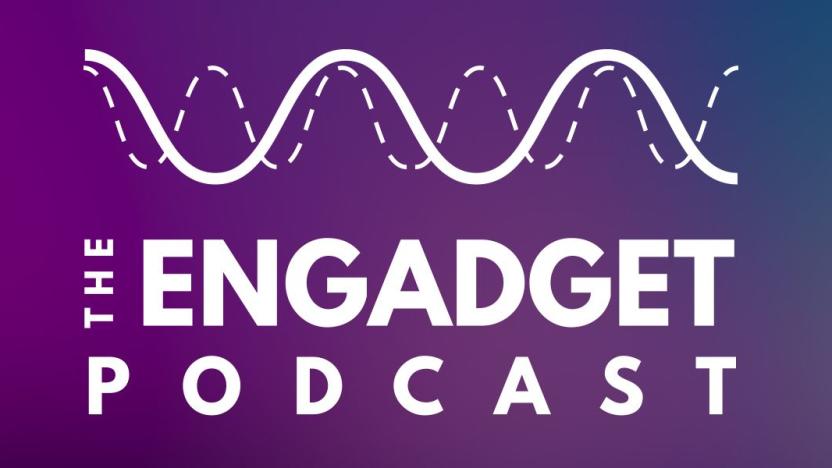
The Engadget Podcast Ep 31: Look Inside America
On this episode a trio of out-of-towners -- managing editor James Trew, senior editor Aaron Souppouris and senior editor Mat Smith -- join host Terrence O'Brien to talk about the latest tech news. First they'll discuss Consumer Reports decision to start considering security and privacy in their ratings. Then try to figure out just what the hell the New York Times is thinking by putting tweets in the print edition of the paper. Then lastly they'll talk about the latest out of Wikileaks and yell a whole lot about what a terrible person Julian Assange is.
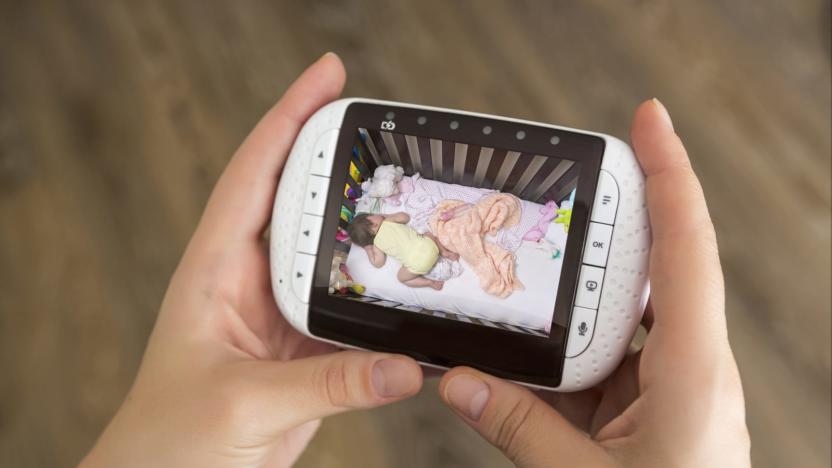
Consumer Reports now rates product privacy and security
When you read a review for a product, you're usually looking for tangible qualities like battery life and performance. As we've seen lately, though, the company's respect for your data matters -- a seemingly perfect gift may turn out to be a privacy nightmare. And Consumer Reports, at least, wants to do something about it. The publication has announced that it will start rating products' privacy and security, and it's working with several partners to create a standard by which products are judged. If a baby monitor or smart TV plays fast and loose with security, you'll know.

A software update will solve those MacBook Pro battery issues
Apple's latest MacBook Pros got plenty of mixed reviews, but the bugs with the laptop's battery life estimates were a bad ending to a tough year for Cupertino. Although Apple figured the machines would get a respectable a 10 hour battery life, independent tests from Consumer Reports showed wildly different results ranging from less than four hours to almost 20 hours, causing the group to pull their recommendation for the first time. While Apple put some of the blame on Intel's Skylake-based chips, a new software update has apparently fixed the issue to Consumer Reports' satisfaction.

Inhabitat's Week in Green: The first freeform 3D-printed house
After 20 years of construction, Switzerland just completed the world's longest and deepest rail tunnel. The 35-mile Gotthard Base Tunnel runs 1.5 miles under the mountains connecting northern and southern Europe. In other transportation news, Paris just banned all cars made before 1997 in a bid to reduce air pollution. Tesla's battery Gigafactory is set to host its grand opening on July 29th, while a new report claims that Volkswagen is spending $15.5 billion to build a gigantic battery factory of its own. Consumer Reports ranked the Toyota Prius as the car with the best gas mileage it has ever tested, and Ford announced that the Fusion Energi can travel further than any other plug-in hybrid on the market.
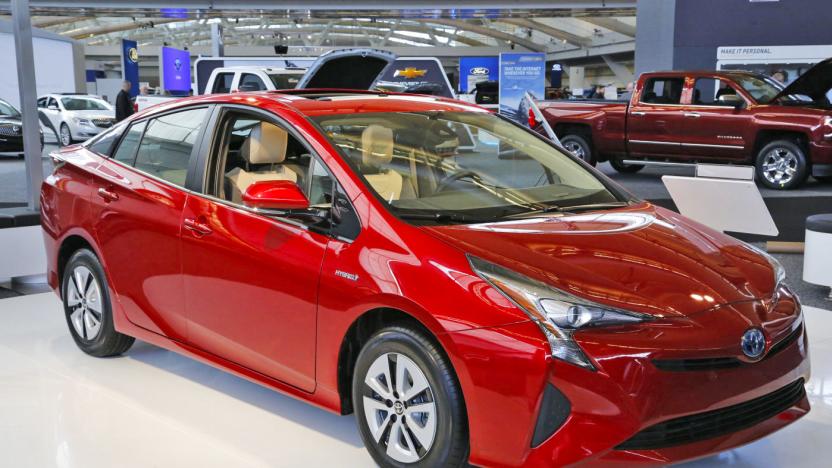
Consumer Reports: 2016 Prius is the most fuel-efficient hybrid ever
It's been a few years since land-cruising Cadillac Escalades ruled America's streets. Fuel economy has trumped gas-guzzling style since the Great Recession, and hybrid cars surged in popularity. The first mass-produced model was the Toyota Prius, and this year's version goes farther on a gallon of gas than any vehicle Consumer Reports has ever tested.

Consumer Reports backs Fitbit accuracy despite lawsuit
Given that there's a lawsuit over the accuracy of Fitbit trackers' heart rate monitors, you might be wondering how trustworthy those wearables really are. Should you buy a chest strap if you need to track your BPM? Not necessarily, if you ask Consumer Reports. It just retested both the Charge HR and Surge under more stringent conditions (additional arm locations and higher-impact workouts), and it found that both were effectively as accurate as a chest-based heart rate monitor. The only significant deviation was when using the Charge HR in particularly intense workouts, and even that could be fixed by wearing the wristband on the forearm.

Elon Musk responds to Consumer Reports' Tesla Model S downgrade
Tesla Motors CEO Elon Musk is good at looking on the bright side of things, from space travel to clean energy and even people getting fired. After Consumer Reports revoked its "recommended" rating for the Tesla Model S this week, noting a "worse-than-average overall problem rate," Musk went on the optimistic offensive in a few tweets. Musk noted that the Consumer Reports reliability survey included "a lot of early production cars" with issues that have been fixed in newer models. He added, "97% of owners expect their next car to be a Tesla (the acid test)."
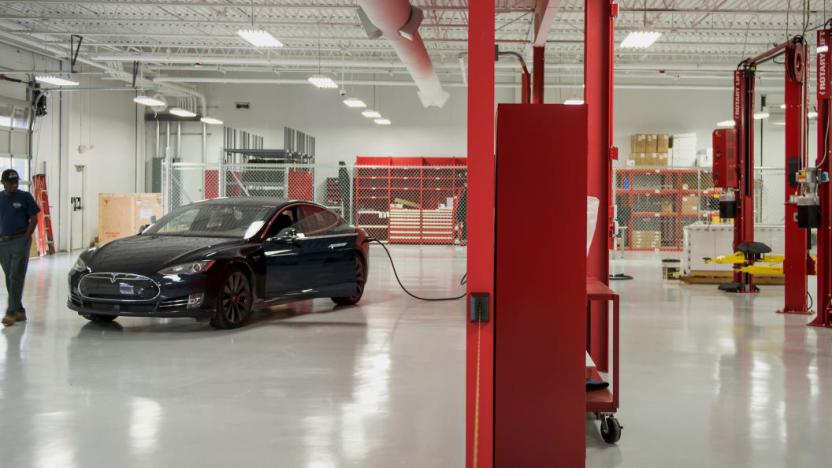
Consumer Reports drops its Tesla Model S recommendation
Once upon a time, Consumer Reports gave the Tesla Model S P85D its highest rating ever, but the love affair is over, for now. While it still loves the way the sedan drives, the review organization has concluded after its Annual Auto Reliability Survey that reports from 1,400 owners show the cars have a "worse-than-average overall problem rate." While it also noted that these problems are mostly covered by Tesla's four year/50,000 mile bumper-to-bumper warranty or its eight year, unlimited mileage powertrain warranty, it still decided the vehicle isn't deserving of its "Recommended" rating. In response, Tesla says it strives to make hardware fixes "painless," and noted that the study also found owners rated the company's service as the best in the world.

Consumer Reports weighs in on iPhone 6 bending
As much as Apple would like for this discussion to be over, controversy and conversation over whether the iPhone 6 / 6 Plus has a durability problem is continuing. Just as it tested out antenna reception for the iPhone 4, Consumer Reports has forced Apple's newest mobile devices into its torture testing chambers, measuring them along with several other devices to see how much pressure they can really take. You can see the tests for yourself in a video embedded after the break, but according to CR, the larger iPhone 6 Plus is actually stronger than its counterpart, only deforming under 90 pounds of pressure, more than the 70 it took to bend the standard iPhone 6 and HTC One (M8). Meanwhile, Unbox Therapy gave a brand new iPhone 6 Plus another go in its less-scientific test, and bent it once again, while a Moto X withstood the challenge. [Image credit: Consumer Reports]








